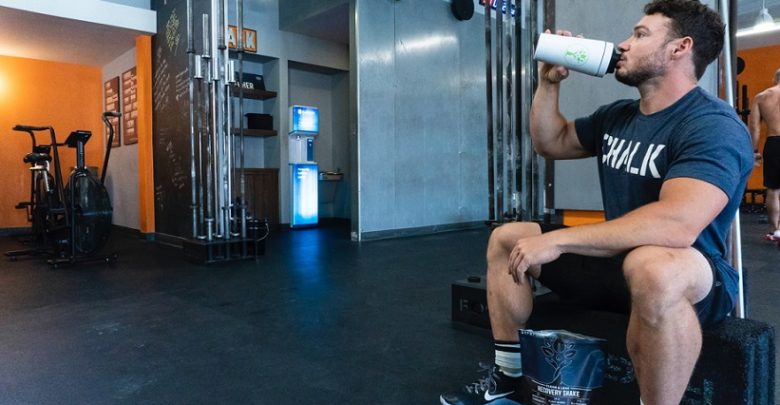
If you’ve been hitting the gym for a while now, you’ll understand the importance of protein for making those all-important gains.
Many guys add a protein powder to their nutrition plan to make sure they’re hitting the right macros. They’re easy to consume and can mean the difference between good recovery (and muscle growth) or those dreaded DOMS (and no real difference to your muscle mass).
But you shouldn’t approach a one size fits all when it comes to hitting your protein goals. Especially if you have a specific set of fitness aims to meet.
Do you want to build or maintain muscle? Maybe you want to lose some extra fat or need to stick to certain diets? One type of protein powder won’t meet all these needs. So which protein do you need?
You need to find the right type of protein powder that’s unique to your specific goals. And that’s where Spot Me Bro comes in.
Here, we list the different types, so you can decide which protein is right for your goals to optimize your body composition.
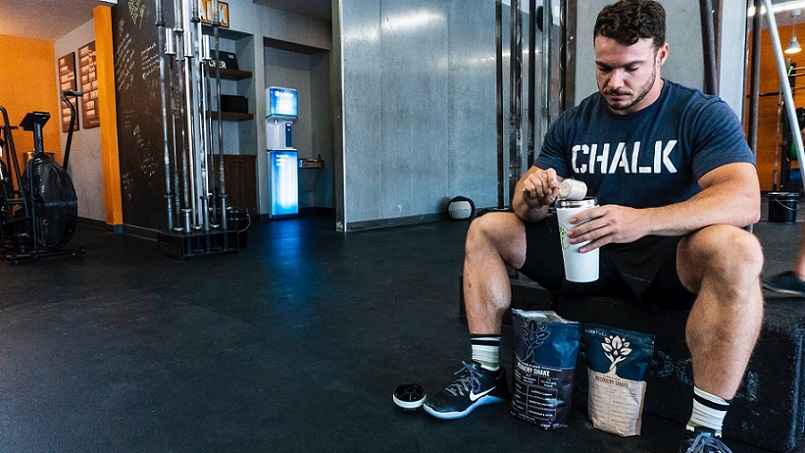
Goal: Build Muscle
Whey protein is the most popular type of protein consumed – and for good reason. It’s widely studied, with research suggesting it can help increase strength, build muscle and lose significant amounts of body fat[1].
Because whey protein includes all nine essential amino acid and is fast-digesting[2], it’s broadly considered the best for building muscle and the best post-workout recovery supplement. Essential amino acids (EAA) trigger muscle protein synthesis and your body cannot produce them on its own, which is why it’s important to get enough EAA each day – especially if you’re trying to build lean muscle mass. When taken over time, alongside regular resistance exercise, whey can help support muscle building.
What’s more, whey protein may support overall health and wellbeing. This is because it contains several active proteins called immunoglobulins that have antimicrobial properties and ramp up your immune system[3].
As a general rule of thumb, you need between 1.2 – 2.2 grams of protein per kilogram of bodyweight daily to encourage muscle growth[4].

Goal: Lose Weight
If you’re looking to trim down and lose a few pounds, you should look towards casein protein. Like whey protein, it contains all essential amino acids but is absorbed far more slowly in the body[5]. For this reason, casein can help keep you fuller for a longer period of time and reduce hunger pangs[6]. This should stop you from grabbing extra less-than-healthy snacks or overdoing it on your calories.
One study found that men who took casein protein supplements over 12 weeks lost an average of 8% of their bodyweight[7].
Because casein protein takes around seven hours to completely digest and be absorbed by the body, it can be a huge benefit if you’re one who regularly tries intermittent fasting. If you’re trying to lose weight, it’s important to consume a steady source of protein throughout the day instead of a large amount at once. We’d also suggest you avoid protein supplements without added sugars or artificial sweeteners.
Goal: Gain Weight
Looking to seriously bulk up? You’ll know that to gain weight, you need to create a calorie surplus. In the kitchen, it can be hard to get all the nutritional support you need to gain healthy mass – and not just fat.
That’s where mass gain protein supplements come in. Unlike normal protein powders, mass gainers concentrate on upping your calorie consumption with a good blend of carbs, some fats and protein. They’ll usually be around 500-1,000 calories per serving and be a form of both whey and casein protein. When it comes to the content of each macronutrient per serving, you’ll generally get around 40g of protein and 70g and above of carbs, rising to as much as 250g of carbs per serving.
Mass gain protein supplements can easily be added to your diet and will help you gain weight or mass without the effort of eating more food.
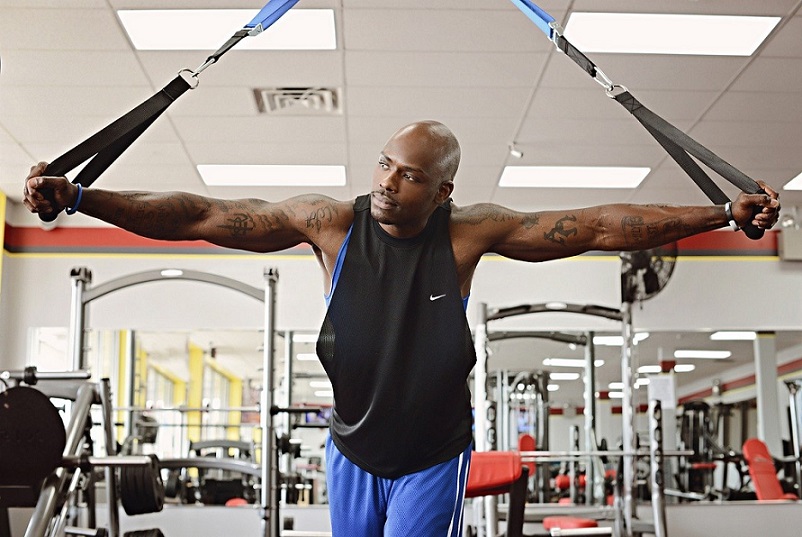
Goal: Eat Vegan
Many active vegan guys may struggle to consume enough protein in their diet. Thankfully, there are types of vegan protein powders to fill these nutritional gaps. Choosing a 100% plant-based protein supplement will ensure you’re hitting your vegan diet goals and still consuming enough of this important macronutrient.
Pea protein powders are popular with many vegans and can pack up to 80% protein content as well as being free from egg, soy and dairy. They also contain all nine essential amino acids which promote muscle growth[8]. Evidence also suggests that pea protein powder is just as effective at boosting feelings of fullness as whey protein powders[9].
Soy is another vegan option and because of its neutral flavor can be a great addition to your favorite shakes or smoothies. Like pea protein, soy contains all essential amino acids that your body cannot make and are crucial for muscle building[10] [11].
And don’t forget hemp protein, which is beneficial if you’re following a diet plan rich in whole foods. It’s packed with EAAs, fiber and healthy fats. What’s more, hemp seeds also contain lignanamides which have powerful antioxidant properties to support your overall wellbeing[12].
As you can see, there are many options available if you follow a vegan diet. Many vegan protein powders may contain a single plant protein or even be a combination of any of the above.
To sum up
Hitting your protein goals is important if you’re a physically active guy. Here at Spot Me Bro, we’re always on the lookout for the right information to help you choose the best products for your goals.
Whether you want to manage your appetite, build muscle or support your particular diet, protein should be a core part of your nutrition. Specific supplements do exist and can help you stay on track.
Protein supplements can help you reach your macronutrient goals – but just be sure you’re choosing the right one!
References
[1] https://www.ncbi.nlm.nih.gov/pubmed/20565767
[2] https://www.ncbi.nlm.nih.gov/pubmed/24800664
[3] https://www.ncbi.nlm.nih.gov/pubmed/26198883
[4] https://examine.com/nutrition/how-much-protein-do-you-need/
[5] https://www.ncbi.nlm.nih.gov/pubmed/9405716
[6] https://www.ncbi.nlm.nih.gov/pubmed/23858091
[7] https://www.ncbi.nlm.nih.gov/pubmed/10838463
[8] https://www.ncbi.nlm.nih.gov/pubmed/25628520
[9] https://www.ncbi.nlm.nih.gov/pmc/articles/PMC4400298/
[10] https://www.ncbi.nlm.nih.gov/pubmed/16365096

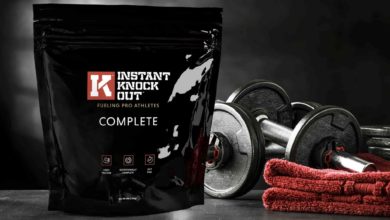
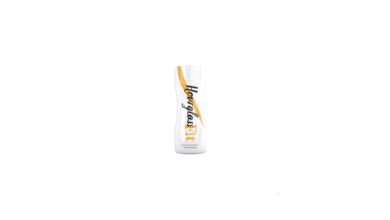
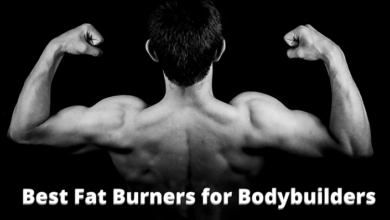
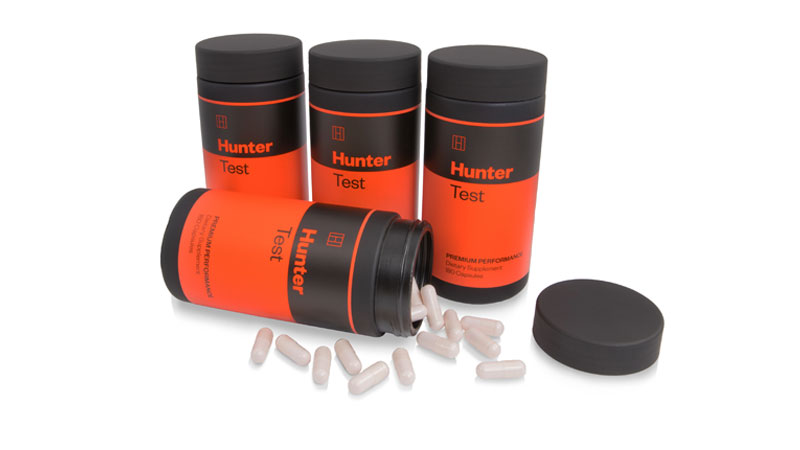
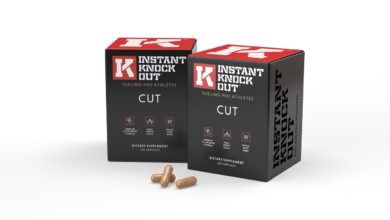

I recently start hitting workout at home and started drinking protein shakes supplements yesterday. You are my source of motivation bro. Thank you very much for sharing your insights!
Looking at vegan diets, my main concern is not getting enough different kinds of protein. I think protein powders are a good sub or alternative to animal and milk proteins, but what are your thoughts on getting a well-rounded variety of proteins?
Hi Nicole – if you’re following a vegan diet, the best way to get a well-rounded variety of proteins is to consume foods like nuts, seeds, nut butters, legumes, pulses and quinoa. Some vegetables also offer a surprising amount of protein including asparagus, broccoli, cauliflower, kale and avocado.
Loved the article, it basically covers everything and is backed by up to date references.
The only thing I would add is how many grams of protein you should eat per meal. The optimum amount of protein you should eat per meal is around 20-30 grams. This is the amount that your muscles are actually able to absorb during a meal.
What might 20-30 grams look like in a meal? Here are some examples:
1 cup cottage cheese (28g)
1 cup Greek yogurt plus a handful of nuts (25g)
A palm size portion of steak, fish and/or poultry (28g)
3 whole eggs + 3 egg whites (27g)
1 scoop of whey protein (25 g)
HI, I Love your content, you always hitting the nail, totally motivating.